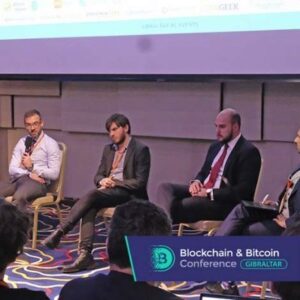Decentralized science, also known as DeSci is opening up new markets for knowledge, and commercial opportunities.
While new technologies can have dramatic and rapid effects on society, they could also spread slowly and subtly. After years of development, blockchain-powered decentralized science is finally taking flight. It is making an impact not only in the secluded confines of high tech labs, but also in the wider business world.
Longevity and psychedelics
Paul Kohlhaas is the co-founder of Molecule and CEO. This platform allows biotech decentralized autonomous organisations (DAOs), to be established in 2019. discussed pharmaceutical research funding on the Zima red podcast in April. Kohlhaas stated that pharmaceutical research could be cheaper if it were coordinated better. “I believe there’s a cultural and bureaucratic issue.”
Kohlhaas has compared blockchain in pharmaceuticals to fintech in banking. He said that the banking industry has only been evolving over the past 10 years due to fintech. “Fintech is starting really hurting their bottom line, and taking away customers.”
Molecule allows universities, researchers, and biotech companies to combine IP rights and data into IP-nonfungible tokens. This creates a new market. An IP-NTF holder can seek funding for research or the organization can make an agreement to use the IP and data for its own purposes.
Funding could also open up new avenues. Kohlhaas mentioned that psychedelics research is a priority in psychiatry, which he personally believes is important. He said that billionaires currently fund longevity startups. But I believe there is a risk. Because rich people who live longer than others and become richer over time will create an unjust society. Wealth isn’t evenly distributed.
Chief operating officer Patrick Joyce compared Research Hub to GitHub for scientific and technical research. Joyce explained to Cointelegraph that the platform has the support of Coinbase CEO Brian Armstrong and may provide an incentive for open-access publishing and fund research in areas that the National Science Foundation doesn’t fund such as quantum biology.
Businesses get blockchain boost.
DeSci is able to provide an advantage in a variety of commercial contexts. One example is the crowded field in consumer genomics. Genomes.io, a London-based company, offers public whole genome sequencing at a 30x rate. This contrasts with many other brands, which sequence the genetic exome and ignore the “junk genes” that make up the majority of the genome. Their importance is rapidly being discovered. Genomes.io CEO Aldo de Pape said that “not a week goes past without a discovery.”
Genomes.io employs 14 people and is the second company co-founded by Mark Hahnel and de Pape. They met at MacMillan Publishers. De Pape then followed Hahnel to Figshare. This company provides data infrastructure for research to large government clients, which Hahnel founded in 2011.
Genomes.io was founded by de Pape and Hahnel in 2018, anticipating the recent gene mapping developments which have brought down the cost of genetic sequencing from billions of dollars to hundreds of thousands of dollars. In 2018, Genomes.io was accepted into ConsenSys Ventures Tachyon 2.0 accelerator. In 2021, it held an initial coin offer (ICO).
Genomes.io encrypts and stores customers’ genetic information in an electronic vault. Customers can choose to receive reports based upon their genetic information (ancestry, rare disease carrier status) with many new topics in the works.
Customers can also consent to their data being used in research queries. The data vault allows query matching, so genomic data is never lost. Blockchain technology ensures security by storing all queries to holders in one version of the ledger.
GENE is awarded to holders who share genomic information. Those who contribute to the design or development of the project through DAO are also rewarded. GNOME is used to govern and is accessible on the Sushi exchange. OpenSea’s “Geneticats”, NFT offers hybrid GENE/GNOME benefits and genomic sequencing.
Participation in the DAO is not difficult. De Pape stated that there is a lot of interest from people who want to build a stronger relationship with the company. Participant receive bounties for their contributions to development and new design ideas. The DAO does not have any say in the Ltd. side, which can include large-scale projects with partners in Australia and Bermuda.
Biometrics done better.
DNAVerse, a Madrid-based company, has discovered another very practical application for genomics. The company will use genetic data to verify holder identities across metaverses. This is in contrast to chatbots or AI. DNAVerse, in collaboration with 3DforScience, creates “DNArt” NFTs that can be used similarly to avatars.
Juan Castillo (marketing director) said DNAVerse is currently in the presale stage. It employs eight people and shares many more with 3DforScience. It has recently partnered up with Polygon Studios, and opened an embassy within the Matrix World metaverse. It will produce 200 “cryptoprotein” NFTs and 3,200 customizable “DNArt” NFTs, based on genetic data of customers. However, it will not contain their data.
New customers will need to choose a “cryptoprotein”, and “DNArt” to be staked on a decentralized marketplace. The holders will receive a portion of the price for participating in the replication process. Customers will receive their genetic data. They remain in control and can choose to remain anonymous. They will be collected under the supervision of a DAO yet to be established.
The business model has many clubby elements. The business model includes clothing that features customers’ “DNArt”, wellbeing channels, and virtual events based upon genetic affinities. Customers can also obtain DNAat for their pets.










